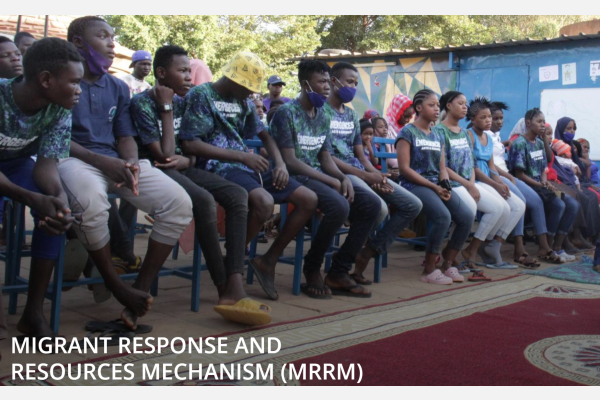Repository of Practices

Medical assistance provided to migrants in Niger
Dates
Type of practice
Summary
MRRM program has a component of direct assistance for the stranded migrants on the Nigerien territory who wish to go back to their home country. The assistance includes primary health services at the IOM transit centers and referral to the local health structures, however, we face sometimes, the situation that migrants with severe health condition cannot make to return home but decease in Niger. For the migrants whose health condition is critical, the IOM transit center health and protection colleagues try to facilitate as much as possible to let the migrants contact their family members if they would like to, and to receive their family contacts. Sometimes, the respective embassies and consulates request to meet their citizens with severe medical conditions, and if the migrants wish to be contacted, IOM also facilitates their meetings. In case migrants pass away during the assistance in Niger, IOM Niger informs the Ministry of Foreign Affairs of Niger about the deaths of the migrants, respecting the nationalities that were declared upon the registration with IOM in order for the ministry to inform the respective representatives of their countries of origin. IOM health unit also contacts the IOM country offices to inform the death, requesting to inform the families if the family contacts were known, and to provide us the authorization of burial in the locality where the death occurs since the repatriation of bodies is not feasible from Niger. The burial is followed in the modality of the believes of the migrants/family members (ex. Muslim or Christian way), and accompanied by their compatriots, other migrants and center staff. When the family wishes, we send the photos of the funeral. When possible, the belongings of the deceased migrants are also sent to the family members, however, since the COVID-19 pandemic, this has been quite a challenge to send back the belongings. All these actions above are done within the MRRM finance. With the national authority, IOM has been seeking to support the management of deaths of non-Nigeriens in the Nigerien territory and IOM will be included for the meetings/discussions once the national multi-disciplinary committee on the mortal remains’ management, created in March 2022.
Organizations
Main Implementing Organization(s)
Detailed Information
Partner/Donor Organizations
Benefit and Impact
Key Lessons
Recommendations(if the practice is to be replicated)
Innovation
- Did this practice catalyse other related initiatives? – N/A
- Are the impacts of the practice sustainable? - yes
- Is this practice scalable? - yes
- If applicable, how did the practice adapt to the changing circumstances posed by the COVID-19 pandemic? -N/A
Additional Resources
Date submitted:
Disclaimer: The content of this practice reflects the views of the implementers and does not necessarily reflect the views of the United Nations, the United Nations Network on Migration, and its members.
More Related Practices:
- Ministerio de Salud: Integrando las necesidades de salud de la población migrante y refugiada en el Perú
- Comité de Familiares de Migrantes Desaparecidos de el Progreso, Yoro, Honduras, COFAMIPRO 25 años dando la lucha en la búsqueda de personas migrantes
- Migrant Response and Resources Mechanism in Niger
- Ocean Viking - Cooperation between SOS MEDITERRANEE and IFRC for Search and Rescue and Post-Rescue Assistance and Relief
- Cooperation between Red Cross and Red Crescent National Societies and their Governments to provide humanitarian assistance and protection
Peer Reviewer Feedback:
*References to Kosovo shall be understood to be in the context of United Nations Security Council resolution 1244 (1999).
Newsletter
Subscribe to our newsletter.